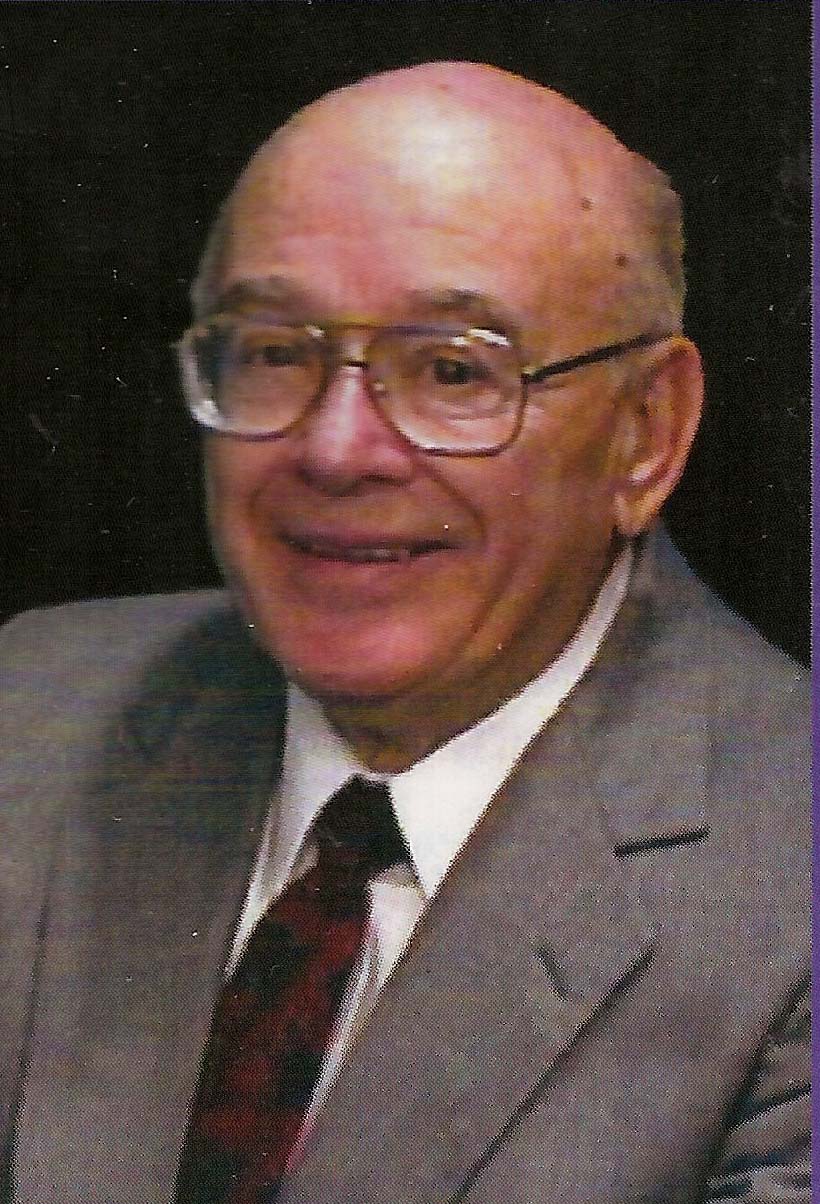By Jack Tanner
But ye shall receive power, after that the Holy Ghost is come upon you: and ye shall be witnesses unto me both in Jerusalem, and in all Judaea, and in Samaria, and unto the uttermost part of the earth (Acts 1:8).
What is the power and the language of this new kingdom? Since the kingdom does not come by observation, there must be some identifying marks that separate it from the fraudulent and deceitful systems that engulf the unwary.
POWER TO REPRODUCE
One of the identifying marks of the early church was the power to reproduce. Jesus sowed the seeds of the new kingdom for more than three years. These seeds were broadcast liberally and took root in some unexpected places. They started to grow in the hearts of people like the Samaritan woman, Zacchaeus, and Mary Magdalene. Jesus’ teaching had little effect on some of the more “religious,” pretentious people, but for those who opened their hearts, the seeds began to grow and to become fruitful.
It is the devil’s business to destroy the “witness potential” of all believers. Most people do not realize the effect of one person’s life upon another. Suppose a person won a soul to Christ each month, and his converts each won this amount. An entire city could be won to God in five years.
First year: One person wins 12 = 13 Second year: 13 win 156
Third year: 156 win 1872
Fourth year: 1872 win 22,464
Fifth year: 22,464 win 269,568
If the devil can interrupt this pyramid of souls at the beginning, he has destroyed the power of growth and the potential to reach every soul with the gospel.
It is not our job to determine the types of soils we think would be most productive. We are to sow the seed. Who are the sowers? In the parable of the sower as recorded in Matthew 13, the sower is not identified by his personality, special ability, or station in life. It states, Behold, a sower went forth to sow He had seed in his hand and went forth to scatter the seed. We might have easily disqualified people like Zacchaeus and Mary Magdalene since they did not fit the image of the mature kingdom person.
The sowers are simply the people to whom God has given the seed. If we have been given the truth, it is for the purpose of sowing. By sowing the truth, we do not bury it in the ground to destroy it. When it is planted, cultivated, and watered, God brings forth the increase. The only way truth can be destroyed is if we refuse to plant it.
The command to preach the gospel to every creature is an emphatic dogma that must be practiced or the fruit of the would-be sower will dry up and wither. Is it possible to hide the light of God under a bushel and still retain the light? The light will automatically be extinguished due to the lack of oxygen. The only way to retain what God has given is to give it away. If we attempt to save our lives, we will lose them. If we hold our witness, we will soon have nothing to witness about.
If we are to present hands full of sheaves, they first must be the hands of the sower. We will not always sow; someday we will reap what we have sown. If we present to God only the seed He gave us, we will be like the one given a talent by his master with no return on the investment. We must not regard the weather nor wait for what we consider the appropriate time. The command is to sow the seed!
THE SEED AND THE SOIL
God created the seed and soil and labeled them good. The seed has not changed, but some of the soil has become hard, dry, and unproductive. One purpose for Jesus using the parable of the sower was to teach us to sow liberally regardless of the circumstances. He also taught that all seed will not grow and mature equally, but that should not hinder the sowing process. The principal meaning of the parable is to sow, sow, sow. God will give the increase. We may look on the outside appearance, which does not always seem favorably inclined to the gospel, but God can see a spark of life waiting to be nourished.
Conditions and poor soil are not reasons for refusing to sow. We are poor judges of what effect the seed will have on lives of people since the Word can make new creatures of the old. Let us then use our hands as God intended, to sow the seed. If the sun withers the tender plant, we should not become discouraged but rather go into plan P, prayer. Sometimes our best intentions get misunderstood and bring confusion instead of harmony; God can add His support to implement the truth.
THE VINE AND THE BRANCHES
Jesus taught that He is the vine and we are the branches. The vine is the source of life and power while the branches are the outreach that bear the fruit. If most of the branches are cut off, the vine will grow more branches. The branches are important but not indispensable.
The power received through the Holy Ghost is God’s avenue of feeding the branches. This power gives life to the branches to flourish and support a fruitful, victorious life, which is the prerequisite for witnessing. To be an effective witness, we must have first conquered the enemies of our soul before we can direct others in their conquest. To witness, we must have something to witness about.
Jesus was not only the vine; He spent much time being the branch. He was fruitful and He sowed during His entire ministry. His disciples questioned the seed He sowed and His selection of soils. The disciples thought children should be placed low on Jesus’ priority list and they, the disciples, should be honored for their obedience to “follow me.”
BECOME AS LITTLE CHILDREN
Jesus said, Except ye be converted, and become as little children, ye shall not enter into the kingdom of heaven.
Whosoever therefore shall humble himself as this little child, the same is greatest in the kingdom of heaven. And whoso shall receive one such little child in my name receiveth me (Matthew 18:3-5). The King hath spoken!
The attitude of the disciples needed more than a little light to shine in their direction. Jesus said, Except ye he converted. The deep resentment in the hearts of Jesus’ disciples, at His spending time on a child, needed repentance that would turn them 180 degrees. Sometimes an older con-vert outgrows his usefulness and must return to becoming a little child.
CAST YOUR BREAD
Cast thy bread upon the waters: for thou shalt find it after many days. Give a portion to seven, and also to eight; for thou knowest not what evil shall be upon the earth. if the clouds be full of rain, they empty themselves upon the earth: and if the tree fall toward the south, or toward the north, in the place where the tree .falleth, there it shall be. He that observeth the wind shall not sow; and he that regardeth the clouds shall not reap (Ecclesiastes 11:1-4).
Witnessing may seem to be a waste of time and effort that can be used better for more pressing matters. The ex-ample of casting your bread upon the waters is an extreme demonstration of faith. “Throwing away” your time and re-sources for what seems to be a hopeless cause must be under the direction of the Holy Ghost to be fruitful.
Some things happen that we cannot predict, nor can we do anything about them. A tree falls, and we cannot raise it back in place. This must be taken in stride as we go on. The text gives the illustration of a tree falling to the north or the south, opposite directions. One direction is our past life, and the opposite is our future. We have experienced falling trees in the past that are now beyond our ability to help. They must be forgotten or put aside for us to effectively face the future. Maybe there was a lesson to be learned that can be helpful in the future as we face other obstacles. Life is uncertain in the best of times.
Conditions are not often perfect for sowing. Past problems or failures must be put to one side as we face the elements to sow. Step over the fallen tree, fill your hand with seed, and get busy. He that observeth the wind shall not sow; and he that regardeth the clouds shall not reap.
There is a time for sowing. It is now! If we regard all of the negative aspects that could affect the sowing process, we will never sow the seed. There will never be a perfect time. The time is short, the night is falling, and if we expect to reap, we must first sow.
THE SOWER IS ALSO A REAPER
But this I say, He which soweth sparingly shall reap also sparingly; and he which soweth bountifully shall reap also bountifully. Every man according as he purposeth in his heart, so let him give; not grudgingly, or of necessity: for God loveth a cheerful giver (II Corinthians 9:6-7).
God is a giver. He is a giver of physical life and spiritual life, giver of our next breath, and giver of sunlight and spiritual light. He is the giver of water and spiritual water (Holy Ghost). He is a giver of Himself as our Savior and soon coming King.
The Lord loves to give good gifts to His people, and He wants us to have the same giving spirit. Sowing is for our benefit. If we are friendly, we will receive many friends. By sowing faith, we receive renewed faith, but the opposite is also true. If we sow doubt, we will receive doubt.
Be not deceived; God is not mocked: for whatsoever a man soweth, that shall he also reap. For he that soweth to his flesh shall of the flesh reap corruption; but he that sow-eth to the Spirit shall of the Spirit reap life everlasting. And let its not be weary in well doing: for in due season we shall reap, if we faint not (Galatians 6:7-9).
This is sowing season. Reaping may not come until we get to heaven, so do not become weary in well doing. “Due season” is the time only God knows. We must now pray, Give its this day our daily bread (Matthew 6: 1 1). Today we need a day’s supply of strength so we may be productive in God’s kingdom. Tomorrow, God will give us our daily supply according to our needs for that day.
Jesus fed the five thousand from one boy’s lunch. He did not say a prayer that produced a mountain of fish and bread, but He divided the boy’s lunch among His disciples to pass to the hungry multitude. Each time they broke off a piece of bread and a portion of fish, they had enough left for the next hungry soul. It required faith for the disciples to go from one person to the next with only a handful of food.
The manna God supplied to the children of Israel in the wilderness was only a day’s supply except on the day prior to the Sabbath. In our receiving, God would also like to increase our faith as He supplies our needs.
God does not want us to live on stale bread. He wants to give us a fresh supply every day. This will guarantee a spirit that can both receive and give.
Natural food is important to sustain life, but more important is spiritual food, which will not only sustain us but also increase our awareness of the present spiritual needs of the people whom God has placed in our hands.
Our spiritual life should go beyond our personal needs. Yes, we need power to overcome temptations, to make right decisions, and to finish the race. Some start the race strong but do not keep up their spiritual strength. We must stay “in condition” by eating the right foods, exercising our faith, and bettering our time beyond our past performance.
POWER USED OR MISUSED
Power misused can destroy. Nuclear power can be used to generate electricity or it can destroy the world. The Holy Ghost is a creative power that makes new creatures out of old sinners. A new convert will help to dig out others and will continue the power of reproduction. if this urge is not fulfilled, the Holy Ghost will be suppressed.
The drive for reproduction, if not fulfilled in one’s ministry, will lead the person to look for self-justification. In-stead of new converts added to the kingdom, the only production is the creation of excuses. A positive force is soon turned to a negative reaction due to frustration. One of the main functions of the church is to teach new converts how to witness. Someone should go with the convert to instruct, bolster his confidence, and help set up Bible studies.
A church that is actively using the power of witnessing eliminates problems before they happen. There is no substitute for Holy Ghost witnessing to keep the church growing and happy.
A church that does not reproduce is dying spiritually, and it will be only a matter of time until it is dead physically as well. God’s church is alive and well, and as a healthy church, it will raise its young to be healthy.
There is much controversy over the meaning of the par-able of the leaven. Another parable spake he unto them; The kingdom of heaven is like unto leaven, which a woman took, and hid in three measures of meal, till the whole was leavened (Matthew 13:33). I would like to offer this explanation; leaven is usually considered as a negative ingredient but it also has some very positive characteristics. The above verse states that the kingdom of heaven is like leaven. The kingdom of heaven is not sinful, vile, or negative.
Leaven is active, and a little can affect much, which is also the characteristic of a true believer in the kingdom of heaven. One can put ten thousand to flight, but our battle is not conquering people but rather conquering sin. The leaven of the Holy Ghost is pure and multiplies quickly. The three measures could be Jerusalem, Judea, and Samaria and then to the uttermost part of the earth.
But ye shall receive power, after that the Holy Ghost is come upon you: and ye shall be witnesses unto me both in Jerusalem, and in all Judaea, and in Samaria, and unto the uttermost part of the earth (Acts 1:8). First, three measures were leavened, and then the boundary was the whole earth.
The amount of leaven hidden in the meal seemed insignificant, but hiding leaven is almost impossible. It works even though it may at first be unnoticed. Leaven is powerful because of its ability to spread quickly. The gospel of the kingdom is like yeast. If it is alive, it will always be at work. Anytime the yeast is no longer working, it is dead or has run its intended course.
As the yeast invades the meal, the meal becomes part of the leaven, and together they become one. If we are partners with Jesus, we lose our identity and become more like Him. Paul declared, For to me to live is Christ (Philippians 1:21). When Jesus comes into our lives through the power of the Holy Ghost, He has chosen to be part of us.
Jesus would rather call us sons than servants. To be sons we must accept part of the Master’s burden and responsibility. As sons we are proud of our Father and are not ashamed to talk about Him to all we meet.
The above article “Power to Witness” is written by Jack Tanner. This article was excerpted from chapter fourteen in Tanner’s book The King And His Kingdom.
The material is copyrighted and should not be repainted under any other name or author. However, this material may freely be used for personal study or purposes.





1 thought on “Power to Witness”
Comments are closed.